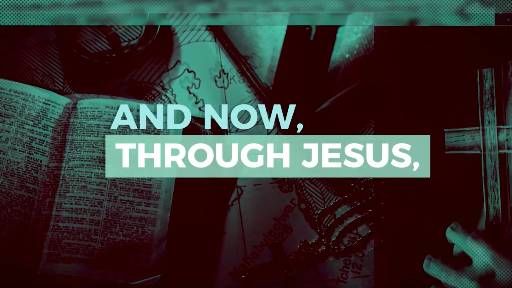-
Land Of The Free, Church Of The Brave
Contributed by Victor Yap on Dec 31, 2025 (message contributor)
Summary: Philemon
LAND OF THE FREE, CHURCH OF THE BRAVE (PHILEMON 1)
One of the most fascinating slave stories known lately is that of Oney (also known as Ona) Judge. Judge was one of George Washington's slaves until she managed to escape. Judge was born into slavery at Mount Vernon, and she traveled with the first couple first to New York and then to Philadelphia when Washington became president.
It was in Philadelphia that Judge learned she was to be given to Martha Washington's granddaughter and re-shipped south. Instead, she slipped away from the presidential mansion with the help of free blacks and made it to New Hampshire. The president took this as a personal affront—he huffed at her "ingratitude"—and tried to recapture her for years, right up until his death. Washington famously freed his slaves in his will, but Judge technically belonged to Martha Washington and thus wouldn't have been affected.
Judge would marry and have three children, and though she lived in near poverty, she expressed no regrets in two interviews before her death in 1848, at around age 75. Washington, for his part, tried to skirt federal rules on the recapture of slaves and enlisted a customs employee to get her back, but Judge, however, evaded all attempts at recapture. (A kids' book on Washington's slaves didn't go over well.)
http://www.usatoday.com/story/news/nation/2017/02/08/she-george-washingtons-slave-until-shed-had-enough/97637378/
Paul usually introduces himself as Paul a servant of Jesus Christ/God (Rom 1:1, Phil 1:1, Titus 1:1) or Paul, an apostle of Jesus Christ (2 Cor 1:1, Gal 1:1,
Col 1:1, 1 Tim 1:1, 2 Tim 1:1), but breaks precedent and identifying himself as Paul a “prisoner,” not once but twice (vv 1, 9). Yet he softens the tone by calling Philemon “dear friend/dearly beloved,” a designation reserved only for Philemon and Timothy (2 Tim 1:2). The letter is unique because it is a prison epistle and a pastoral epistle because it is addressed to Philemon as well as the church (v 2).
What is the strongest motivation in encouraging others to act or change? How are believers to treat one another as members of God’s household? Why is experiencing Gods glory and grace indispensable to overcome life’s grievances?
Attend to All Passionately
1 Paul, a prisoner of Christ Jesus, and Timothy our brother, To Philemon our dear friend and fellow worker— 2 also to Apphia our sister and Archippus our fellow soldier—and to the church that meets in your home: 3 Grace and peace to you from God our Father and the Lord Jesus Christ. 4 I always thank my God as I remember you in my prayers, 5 because I hear about your love for all his holy people and your faith in the Lord Jesus. 6 I pray that your partnership with us in the faith may be effective in deepening your understanding of every good thing we share for the sake of Christ. 7 Your love has given me great joy and encouragement, because you, brother, have refreshed the hearts of the Lord’s people.
There are lots of ways to practice gratitude, from keeping a journal of things you're grateful for, sharing three good things that happen each day with a friend or your partner, and going out of your way to show gratitude when others help you. In an experiment where participants took note of things they were grateful for each day, their moods were improved just from this simple practice:
The gratitude-outlook groups exhibited heightened well-being across several, though not all, of the outcome measures across the three studies, relative to the comparison groups. The effect on positive affect appeared to be the most robust finding. Results suggest that a conscious focus on blessings may have emotional and interpersonal benefits.
The Journal of Happiness studies published a study that used letters of gratitude to test how being grateful can affect our levels of happiness:
Participants included 219 men and women who wrote three letters of gratitude over a 3 week period. Results indicated that writing letters of gratitude increased participants' happiness and life satisfaction while decreasing depressive symptoms.
https://www.inc.com/jeff-haden/10-scientifically-proven-ways-to-be-incredibly-happy-wed.html
Like other epistles addressed to churches but not to individuals such as Timothy and Titus, Paul began with a thanksgiving to God. Even though Paul mentioned his imprisonment four times (vv 1, 9, 10, 13), the first verb Paul used to describe himself was “I thank” (v 4). Paul heard of Philemon’s love and faith to the Lord and the saints – both love and faith to God and people alike, unlike NIV’s compartmentalization of both. The outcome of the partnership (v 6, koinonia), fellowship and sharing of his faith was effectiveness/energy (energes) added to the knowledge of the good, the beneficiary could be both.
Still, Paul’s main assertion was that he and others (we) had great joy and encouragement (consolation) from the hearts of the Lord’s people being refreshed. Great (polus) joy occurs one other time only in the Bible, when the gospel miracles caused great joy to the Samaritans (Acts 8:8), who were not discriminate or disqualified from the gospel. Encouragement (v 7) is translated as consolation (Luke 2:25), comfort (Acts 9:31) and exhortation (Acts 13:15) and intreaty (2 Cor 8:4) (consolation (14x), exhortation (8x), comfort (6x), intreaty (1x)). Paul clarified what he meant by saying the hearts (Luke 1:78 “tender”, 2 Cor 7:15 “inward affection”) of the saints were rested (Matt 11:28) or eased (Luke 12:19). In other words, because of Philemon’s input into the church and work in peoples’ lives the believers were rejoicing, reassured and rested.

 Sermon Central
Sermon Central


